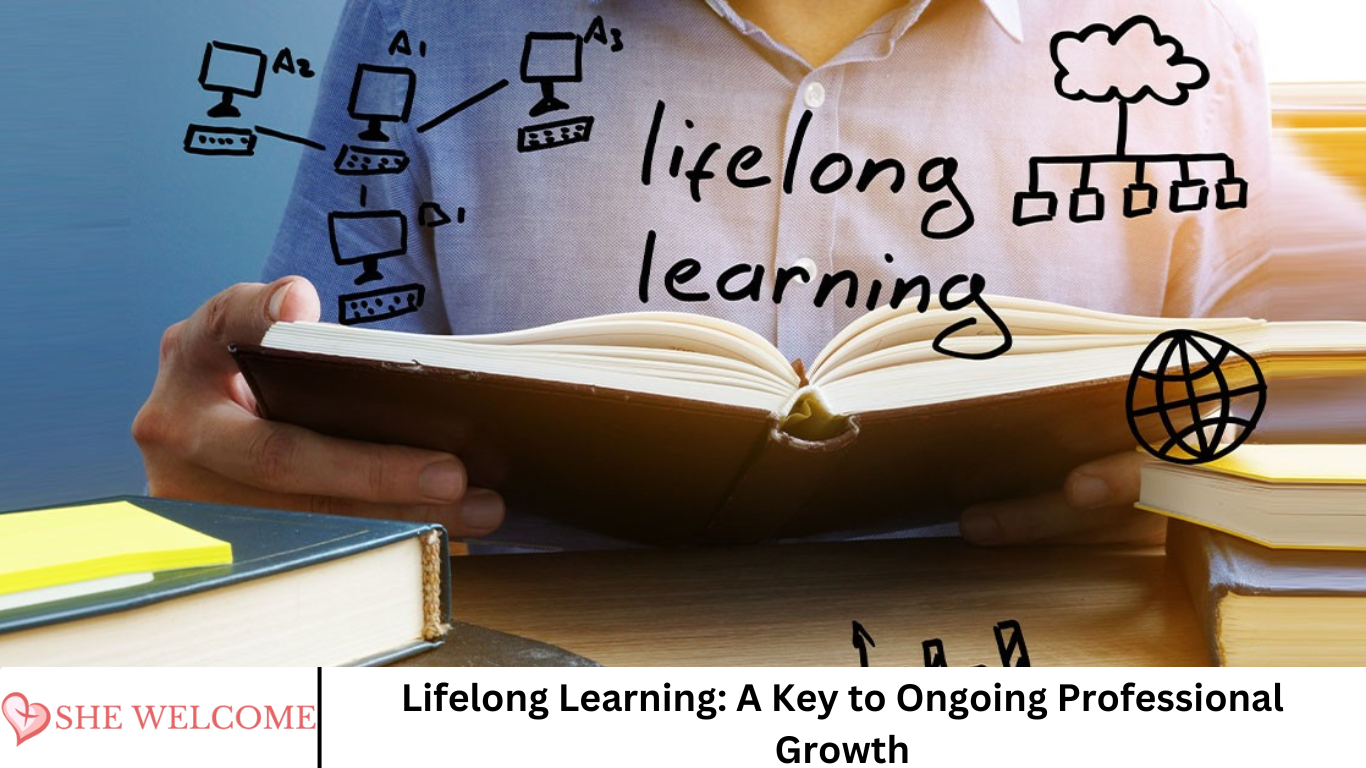Fast-paced, ever-evolving professional landscape, the idea of education ending with a diploma or degree is not only outdated—it’s detrimental. Lifelong learning is no longer a luxury or a personal preference; it’s a necessity for anyone who aspires to thrive and remain competitive in their career.
Whether you’re just starting out or are well into your professional journey, committing to continuous learning can provide you with the tools, insights, and edge needed to grow and adapt.
More Read: Creating an Effective Study Schedule for High School Students
What is Lifelong Learning?
Lifelong learning is the ongoing, voluntary pursuit of knowledge for personal or professional development. It encompasses everything from formal education, such as workshops and certifications, to informal methods like reading, podcasts, and self-taught skills. This mindset of continuous improvement helps individuals stay relevant in their field, expand their abilities, and maintain a growth-oriented approach to work and life.
The Changing Nature of Work
Technology is transforming industries at a rapid pace. Automation, artificial intelligence, and digital platforms are reshaping how we work, communicate, and deliver value. As roles evolve or become obsolete, professionals who invest in learning new skills and adapting to changes are better positioned to seize new opportunities.
A study by the World Economic Forum predicts that by 2025, 50% of all employees will need reskilling. This staggering statistic underscores the urgency of embracing lifelong learning. In an environment where change is constant, staying stagnant can be professionally dangerous.
The Benefits of Lifelong Learning for Professional Growth
1. Enhanced Career Opportunities
Employers value individuals who show initiative and are committed to personal and professional growth. Lifelong learners are more likely to be considered for promotions, leadership roles, or new career paths. Learning new skills or earning additional credentials demonstrates to employers that you’re proactive, adaptable, and invested in your future.
2. Improved Adaptability and Resilience
Professionals who engage in lifelong learning are better equipped to handle changes in the workplace. They can adapt more easily to new tools, processes, or job roles. This flexibility makes them valuable assets in times of transition and can reduce the stress that often accompanies change.
3. Increased Confidence and Motivation
Mastering new skills or gaining knowledge can significantly boost your confidence. When you feel more competent, you’re more likely to take initiative, contribute ideas, and take on challenging projects. Lifelong learning helps you stay motivated and engaged in your career by setting and achieving new goals.
4. Stronger Professional Network
Courses, seminars, and industry events often bring together like-minded professionals. Engaging in these learning opportunities can help you build a robust network that supports your growth. You might meet mentors, potential collaborators, or future employers.
5. Staying Current with Industry Trends
Industries are constantly evolving, and professionals who fail to keep up can quickly become irrelevant. Lifelong learning keeps you informed about the latest trends, technologies, and best practices, ensuring your skills remain valuable.
How to Embrace Lifelong Learning
1. Set Clear Learning Goals
Determine what you want to learn and why. Are you aiming for a promotion? Trying to switch industries? Want to improve your communication skills? Having clear goals helps you stay focused and motivated.
2. Create a Learning Plan
Once you know your goals, create a structured plan to achieve them. This could include enrolling in online courses, attending workshops, reading specific books, or scheduling regular time for skill-building.
3. Leverage Online Learning Platforms
Websites like Coursera, LinkedIn Learning, Udemy, and Khan Academy offer a vast array of courses across different subjects. These platforms make it easy to learn at your own pace and schedule.
4. Read Regularly
Books, industry publications, and blogs are excellent sources of up-to-date knowledge. Dedicate time each week to reading content relevant to your field or interests.
5. Attend Workshops and Seminars
In-person or virtual events provide opportunities for hands-on learning and networking. Look for industry conferences, webinars, or local meetups.
6. Seek Feedback and Reflect
Feedback is a powerful learning tool. Regularly seek input from peers, mentors, or supervisors and reflect on areas for improvement. This helps you stay aligned with your goals and continuously evolve.
7. Teach Others
One of the best ways to reinforce your learning is by teaching it to others. This could be through mentoring, creating content, or leading training sessions at work.
Overcoming Barriers to Lifelong Learning
Despite its many benefits, embracing lifelong learning can come with challenges. Here are some common barriers and how to overcome them:
- Time Constraints: Learning doesn’t require hours each day. Even dedicating 15-30 minutes daily to learning can yield significant results over time.
- Financial Limitations: There are many free or low-cost learning resources available online. Public libraries, community centers, and employer-sponsored programs can also be valuable.
- Lack of Motivation: Tie your learning to tangible goals or outcomes. Celebrate small wins to stay motivated.
- Information Overload: Focus on quality over quantity. Choose a few key areas to develop and prioritize them.
Lifelong Learning in Action: Real-World Examples
1. The Career Shifter
Emma was a marketing professional for over a decade before deciding to transition into UX design. Through online courses, mentorship, and personal projects, she gradually built her portfolio and landed a new role in tech. Her willingness to learn and adapt made the transition possible.
2. The Climbing Leader
Raj, a mid-level manager, began taking leadership and communication courses to prepare for a senior role. He also joined a peer coaching group and read extensively about emotional intelligence. Within a year, his improved skills led to a promotion.
3. The Tech-Savvy Veteran
Linda, a seasoned HR professional, realized her team was moving toward data-driven decision-making. She took courses in data analytics and HR technology. Her new skills not only helped her lead the transformation but also made her a thought leader in her organization.
The Future of Lifelong Learning
As the workplace continues to evolve, the emphasis on lifelong learning will only intensify. Future careers will demand a hybrid of technical and soft skills, continuous upskilling, and a mindset open to change. Organizations that foster a culture of learning will attract top talent and drive innovation.
Governments, educational institutions, and employers are beginning to recognize this need by offering micro-credentials, personalized learning paths, and flexible education options. The future belongs to those who are willing to learn, unlearn, and relearn.
Frequently Asked Question
What is lifelong learning and why is it important for professionals?
Lifelong learning refers to the ongoing, voluntary pursuit of knowledge for personal or professional reasons. For professionals, it’s crucial because it helps maintain relevance, adapt to change, and stay competitive in a rapidly evolving job market.
How does lifelong learning contribute to career advancement?
Lifelong learning enables professionals to acquire new skills, gain industry insights, and improve their adaptability. These qualities often lead to promotions, leadership opportunities, and access to higher-paying or more fulfilling roles.
What are some effective ways to engage in lifelong learning?
You can engage in lifelong learning through online courses, workshops, webinars, professional reading, certifications, mentorship, networking events, and even teaching or mentoring others.
Is lifelong learning only relevant for people in fast-changing industries like tech?
No. Lifelong learning benefits professionals in all fields, from healthcare and education to finance and trades. Every industry evolves, and continuous learning helps individuals stay current, efficient, and innovative.
How can I fit learning into a busy schedule?
Start small—dedicate just 15–30 minutes per day to learning. Use microlearning platforms, listen to podcasts during commutes, read during breaks, or take short online modules during the week.
What are some free or affordable resources for lifelong learning?
Some top free or low-cost platforms include Coursera, LinkedIn Learning, edX, Khan Academy, YouTube, podcasts, public libraries, and local community workshops.
How can employers support lifelong learning in the workplace?
Employers can support lifelong learning by offering training programs, reimbursing education costs, creating mentorship opportunities, encouraging knowledge-sharing, and building a culture that values continuous development.
Conclusion
Lifelong learning is the cornerstone of ongoing professional growth. It’s not just about climbing the career ladder; it’s about becoming the best version of yourself in a world that never stops changing. By embracing a mindset of continuous improvement, you position yourself to thrive professionally and personally. The journey may be long, but the rewards are lifelong.


